- Home
- Michael Dobbs
Whispers of Betrayal Page 8
Whispers of Betrayal Read online
Page 8
‘What you say is true. I wanted an apology from the Minister. Some sign of remorse. It would have helped. Only words, I know, but words are important in a matter of honour. And this is a matter of honour. But the Minister wouldn’t have it, insisted on telling me and every other man and woman connected with the armed forces to … How did you so eloquently put it, Freddie?’
‘To go fuck ourselves.’
‘Precisely. So unnecessary, I thought. Not a gentleman, our Mr Earwick.’ For a moment it appeared as though he had finished while he attacked his rump steak until the blood ran around his plate.
‘So what are you going to do about it?’
‘Mary, what gives you the idea that I plan to do anything about it?’
‘Because I remember Swanleigh.’
‘Swanleigh?’
‘The cadet who fell asleep in one of the classes you were instructing at Sandhurst.’
‘Aaahh …’
‘You had him stripped and thrown into the river. That’s you all over, Peter. You don’t take crap lying down.’
‘But I was so soft,’ Amadeus protested.
‘Soft? You had his feet tied!’
‘I left his hands free.’
‘It was the middle of bloody February. There was ice on the river …’
‘Was there?’ He sounded almost distracted. ‘Splendid. I bet the dopey bastard never fell asleep in class again. Or on patrol, either.’
Mary laughed. Her laughter was like a call from a distant mountain, noises from a time past. Suddenly she realized how much she was enjoying her day – the invigorating chaos of London, the adventure of meeting new people, even someone like Payne, the excitement of discussing something other than warble fly and infected udders around the dinner table. She was engaged in life once more. She’d almost forgotten what it was like. Suddenly, she dreaded going back.
McKenzie took up the challenge. ‘So what are ye going to do, Peter? Grab Earwig and douse him in the river, too?’
‘What would be the point, Andy?’
‘To encourage him to more vigilance. To change his mind, perhaps.’
‘Assuming he has a mind to change.’
‘Then what about the unadulterated pleasure of revenge? That’d be enough for some.’
Amadeus pushed aside his glass of wine, which had scarcely been touched. It was as though he were making room on the table cloth in front of him for a plan of battle. ‘I think we need more than that. Much more. We need to move the Government. To change their mind.’ Gently, almost tenderly, he smoothed out the creases in the linen. ‘Or have it changed for them.’
‘What, bloody revolution?’
‘No, not revolution. Perhaps more along the lines of a little encouragement. A gentle prod in the right direction. I think they need reminding that the world can still be full of misfortune.’
‘Tell us ’bout it,’ Payne muttered, heavy tongued, as he refilled his own glass.
‘That’s why I invited you all here for dinner. To see whether any of you might be interested in … a matter of honour.’ He returned to the phrase once again, like a call to arms. Or an alibi, perhaps.
He gazed around the table. All three of his guests returned his stare, even Payne, through eyes that were turning to glass.
‘It would require a little risk. And perhaps more than a little time. Here in London, Mary,’ he added, addressing her directly.
‘Not a problem. I’m not going back to Exmoor.’ Her words startled her. The words were entirely unexpected; she hadn’t known until this moment. Yet it seemed so obvious.
‘But what is it that four of us can do?’ McKenzie pressed.
‘Look at yourselves. All of you specialists. The finest the British Army can produce. Communications. Reconnaissance. Munitions. One lunatic Paratrooper. Expertise and madness – the sort of talents that ought to scare the hell out of anyone with a little imagination. And what could we do?’ He looked slowly around the table, staring once more into their eyes, testing them. ‘Why, practically anything we damn well wanted!’
He began to beat his fists upon the table, as though beating a drum, until the cutlery rattled and the glasses sang. And, one by one, the others joined him, a war party, until the noise became so loud that it echoed around the large dining hall.
The waiter turned and slowly shook his head. He might have known it. Ah, Colonel Amadeus. Bit of a mad bugger, that one. Or so he’d heard.
Goodfellowe’s pager stirred. He uttered something rude and not at all profound. The wretched thing made him feel like a criminal, allowed to roam only on condition that he was electronically tagged. For tuppence he’d have thrown the thing in the Thames, but for ambition he now kept it with him, and switched on.
The small screen lit up and began to flash a sickly green.
‘UNLESS YOUR AREA WHIP ADVISES YOU OTHERWISE YOU ARE NOW ON A ONE-LINE WHIP.’
Simon says stand up. Simon says stand down. Turn around. Go jump …
Was it any different when he’d been a Minister? Had high office given him any more control over his life? Control over others, certainly, but his own life? He tried to remember, but couldn’t. It all seemed so long ago, wrapped up with the death of his son Stevie, and he’d spent much of the intervening years trying to block it all out – as his wife Elinor had done, to such terrifying effect.
Goodfellowe rebuked himself; he should stop being churlish. A One-Line Whip meant he didn’t have to bother. It was good news. An evening off. And his thoughts turned to Elizabeth, away in the Ukraine. Half seven in London, two hours later in Odessa. Should be back at her hotel by now.
So he rang, but there was no reply. Nor when he tried again half an hour later.
He hated the feeling of emptiness that struck him when she was away, the insecurity that bit into his humour at times like this. Was it that he felt inadequate? Or didn’t trust her? Or was it that he didn’t trust himself? The more he struggled with the questions, the more he realized he wasn’t likely to enjoy any of the answers, so he stopped. He telephoned Sam instead.
In the years since the death of Stevie and during the misery of his wife’s final and irreversible mental decline, Samantha had often been his only hold on happiness, the rock on which he had managed to rebuild his shattered life. She was now eighteen, studying the history of art at London University, and had digs less than two miles from his own apartment, yet he hadn’t seen her in almost a month. His fault. Things always seemed his fault. Time to do something about it.
But life somehow never quite fell into place for Goodfellowe.
‘No, don’t come round, Dad,’ she insisted when he called. ‘I’m meeting a friend in half an hour. At the coffee shop. But …’ – a sudden decision – ‘come and join us. He’d love to meet you.’
Whoever ‘he’ was.
Goodfellowe made it there five minutes early and commandeered a table with a good view of the window. They arrived holding hands. ‘Dad, meet Darren. And so forth.’ She waved the two together.
Darren’s hand was firm, his eye steady, his hair neatly trimmed, indeed everything that one might expect of a graduate student at the Business School, as Darren turned out to be. He was amusing, ambitious, evidently a young man of the world. Holding hands with his daughter. Touching. Brushing against her. Being almost proprietorial.
Goodfellowe decided he’d have to be adult about that. Trouble was, he wasn’t always very good at the ‘grown-up’ thing when it came to his daughter. Every time she produced a new boyfriend it was always the same, that initial feeling of panic and distress. Like sitting in the dentist’s chair watching the needle approach, knowing it was likely to hurt.
‘It’s been too long, Sam,’ he smiled, extracting the teabag from his mug. There was nowhere to put the dripping mess. That’s how they made tea in a coffee shop.
‘S’pose it has,’ she offered, trying to bend her youthful mind around the elusive concept of Time. ‘Almost like when I was younger. You remember? Those years when
I only ever saw you on television?’
It wasn’t intended to make him feel guilty. She succeeded nonetheless.
‘Not quite the same, I dare say.’ He made a fuss over his hot tea, as though his lips were burning rather than his cheeks. ‘But since we’re discussing seeing each other at a distance, did I catch sight of you the other day? At Trafalgar Square?’
She beamed. ‘Sensational, wasn’t it?’
‘Bloody inconvenient. But I got your point.’
‘You should have joined in, Dad.’
‘I did. No choice. But for what it’s worth, I agree, something has to be done.’ He bit into a croissant, the pleasure of which was considerably devalued by the avalanche of flakes that was sent tumbling down his chest.
‘That’s not quite what I expected to hear from a politician, Mr Goodfellowe,’ Darren interjected.
‘My party bosses frequently tell me that I’m not what they expect from a politician,’ he responded, picking crumbs from his tie.
‘I don’t understand … You agree something ought to be done. Everybody seems to agree. So why doesn’t it happen?’
Goodfellowe rubbed the motif on his tie, wondering whether it was a stain or the design. ‘Because I am a humble backbencher. Parliamentary pond life. If I speak sense no one will hear it above the noise of the rabble. If I shout loud enough for anyone to take notice I simply make myself part of the rabble.’ Damn. Stain. ‘Anyway, it’s all very well setting yourself up as Robin Hood, rushing around trying to right all those wrongs, but I can tell you it gets damp and very cold out there on your own in the forest.’
‘You’re saying parliamentary politics are pointless?’
‘No, not at all. But if you really want to make things happen – as you put it – you need to have your hands on some of the levers. Be a Minister.’
‘So it’s being a backbencher that is pointless?’ Darren pressed, before realizing the unintended slight. ‘Oh, I’m sorry, Mr Goodfellowe …’
Goodfellowe laughed, wondering how Darren managed to keep his tie so straight. Did he use a different knot? Somewhere he’d read there were seventeen different ways of doing it. ‘Call me Tom. And, no, being a backbencher isn’t entirely pointless. It only seems that way at times.’ Most of the bloody time, actually, but he didn’t want to take honesty too far. Might scare the children.
‘But I thought you rather enjoyed being Robin Hood,’ Sam joined in. ‘You know … the independence. The free life. Getting out among the serfs.’
‘Sure, but … It’s one of the things I wanted to chat with you about, darling daughter. Get your view. Of course I enjoy playing Robin Hood. It’s just that at times – perhaps too many times – you feel about as much use as a fly on a windscreen. That’s why I’m thinking of becoming – trying to become, at least – a Minister once more.’
‘You? A Minister?’ Sam sounded startled.
‘Bit like you at Trafalgar Square the other day. In fact, just like that. You know, wanting to make a difference.’
‘You want to become a Minister?’ The question was repeated, very slowly, the breath rattling hoarsely in her throat, with every syllable emphasized as though the words were being constructed from first principles.
‘Yes.’
‘I can’t believe you.’
‘Why?’
‘You want to join the most bankrupt Government since …’
‘The economy’s a mess, sure, but …’
‘I’m not talking money,’ she bit back, her voice raised. ‘Whatever happened to principle? To all those promises that Bendall conned us with at the last election? About education? About the environment? About the future?’ She was trembling, her half-drunk cappuccino spilling into the saucer. ‘I thought you cared about all that. And now you want to climb into bed with those sleazeballs?’
‘It’s precisely because I care that I want to help. Make changes. Push the system along from the inside.’ He had been taken aback and was grasping for suitable words to explain. ‘A wise old Tibetan once said that a single drop of rain upon the desert …’
‘Dad, this isn’t sodding Tibet,’ she butted in, shoving her way past his words. ‘You’re selling out.’
‘I’m not. Be reasonable, for God’s sake. There has to be a bit of give and take.’
‘What – like last time?’ There were tears brimming in her eyes, now they were tumbling down her cheeks. ‘Haven’t we given enough? Mummy? Stevie …?’ She could say no more, choking back the pain, scrabbling for a tissue from the bottom of her bag.
Goodfellowe found himself utterly lost in the midst of this sudden blizzard. Hadn’t he given enough, too? What was he supposed to do, give up his ambition, his desire? Turn his back on the new life he had embarked upon, with its influence and its authority? And with Elizabeth? Simply because the Prime Minister had the scruples of a timeshare salesman?
‘Sorry, Darren,’ he apologized for the family scene. ‘Politics are all about passion.’
‘I agree.’ His voice had remarkable authority for his years. ‘That’s why I voted for Bendall. He talked about all the things I feel so passionately for.’ He shrugged. Broad shoulders, athletic. ‘But perhaps I’m naïve. I agree with Sam. Above all politics should be about principle. And for Bendall to take a stand on principle is about as likely as Scunthorpe hosting the next Olympics.’
‘That’s a little harsh …’
‘A very flexible man, is our Prime Minister. He promised us the earth at the last election. Trouble is, we’re still waiting for it. Bit like a drunk in the bar who promises to buy a round but always has to borrow the money to do it. Well, if he won’t pay, he’ll just have to be forced to pay. And if that means screwing up Trafalgar Square and every other part of London, so be it. Nothing personal, you understand, Mr Goodfellowe.’
‘Hang on, I thought you were in business studies,’ Goodfellowe offered breathlessly.
‘I am. I’m also chair of the university Environmental Alliance. That’s how Sam and I met.’
‘Well, I suppose it’s all very wonderful being young and able to ride two horses at once. Business. Environmentalism. But, sadly, life forces us to make choices – yes, even to make compromises. Just like politics.’ He knew it was patronizing crap a millisecond after it’d left his mouth.
‘I don’t see why. One day I want to run a major corporation. Where better to be if you’re passionate about the future of the planet? Or are you still locked in that time warp where all environmentalists wander around in dreadlocks and live in some sweaty tunnel beneath a motorway?’
‘Somehow I feel I’m the one who’s just been digging himself a hole.’ He looked across at Sam, moved his hand towards her. ‘I need help. Should I send for a shovel?’ It was meant to lighten the moment, a peace offering. She threw back a look of bloodshot betrayal.
Once again Goodfellowe’s life had turned into a battlefield upon which the two halves of his being, family and politics, were waging war. Stevie had drowned while Goodfellowe was attending to his red boxes. Too busy to play dad. No one’s fault, really, just one of those bloody unfair things. No one had said anything, but Goodfellowe knew that Sam, his wife, everyone, blamed him. He knew that beyond any doubt because he, too, blamed himself. So a family at war, a war that was undeclared but never forgotten. It was the reason why he had resigned as a Minister in the first place, from a sense of guilt and also a sense of duty to his wife and to Sam, to find the space in which he could sort himself out. Yet now his life had become more complicated than ever, with Sam on one side, Elizabeth on the other. Damn.
Sam left without saying goodbye, one arm wrapped in proprietorial fashion around Darren’s waist, the other wiping an eye. Her parting words were little more than an accusation. ‘Daddy, you’ve changed.’
Had he? Was his mind already shuttered? Had he already fallen into Ministerial mode? He was clambering back over the wall, but did this mean he would have to leave Sam behind? She was pleading with him to stop, while Elizabeth,
and all the other things he wanted for himself, were pushing him onward. Torn to pieces by the two women he loved most in the world.
He got back to his apartment around ten, and telephoned Elizabeth once more. He wasn’t checking up, merely wanted to say goodnight.
Still no reply.
It took Amadeus three days and nights to find him.
He was all but unrecognizable in the lamplight beneath the covering of cardboard. The face was blackened more effectively than any camouflage stick could manage, because the dust never stopped swirling at gutter level.
Amadeus squatted beside him in the foul-smelling doorway, squeezing him aside to make room, silencing the storm of protest by producing a full pack of cigarettes.
‘So, Albert Andrew, I was sort of wondering.’
‘Won’ring what?’ Scully snarled, in between hungry draws on the first cigarette. ‘Sir,’ he added as the nicotine began to calm him. Old habits.
‘Whether you’ve had enough of sitting on your arse in shop doorways. Bumming drinks and cigarette ends. Smelling like a field latrine.’
‘Wha’ the fuck’s it gotta do wi’ you?’
‘Oh, Skulls,’ Amadeus scolded. Of course it had to do with him. ‘I’ve got something of a proposition. See if you want to get back into the business.’
‘Business?’ The eyes were darting in agitation around the alleyway as though he feared someone was about to pounce and steal his precious cigarettes. He didn’t seem to want to look at Amadeus.
‘Red Devil business.’
‘No such bleedin’ business any more. They don’t fuckin’ want me. An’ I’ve got a busted fucking foot.’
‘I want you, Skulls. You were the best soldier who ever served with me. You see, me and a few pals, we’ve got a little skirmish planned. We want your help.’
The red-blown eyes steadied, lost their look of a wild ferret, and considered. Somebody wanted him again. It had been such a long time since anybody had wanted him.
‘Fuck you, Co’nel.’
Slowly a hand extended from beneath the dirty blanket. Scully pushed a cigarette towards Amadeus. A peace offering.

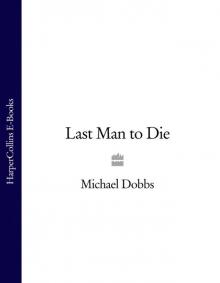 Last Man to Die
Last Man to Die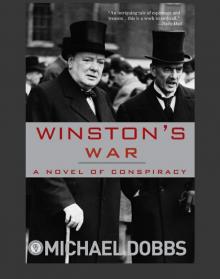 Winston's War
Winston's War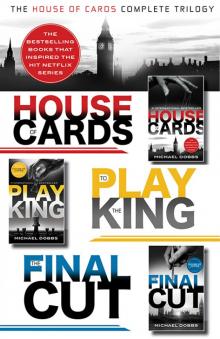 The House of Cards Complete Trilogy
The House of Cards Complete Trilogy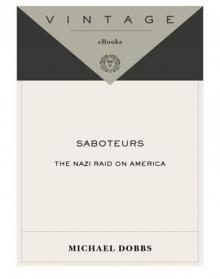 Saboteurs
Saboteurs The Touch of Innocents
The Touch of Innocents WC02 - Never Surrender
WC02 - Never Surrender Old Enemies
Old Enemies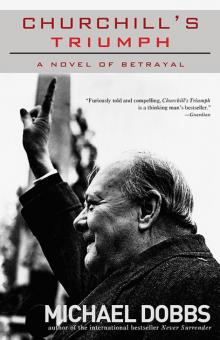 Churchill's Triumph
Churchill's Triumph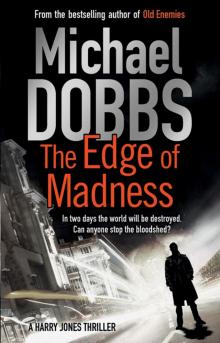 The Edge of Madness
The Edge of Madness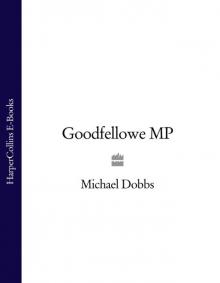 Goodfellowe MP
Goodfellowe MP The Final Cut
The Final Cut Whispers of Betrayal
Whispers of Betrayal Churchill's Hour
Churchill's Hour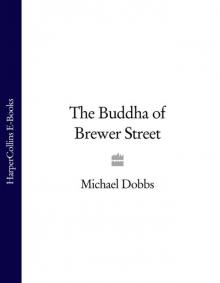 The Buddha of Brewer Street
The Buddha of Brewer Street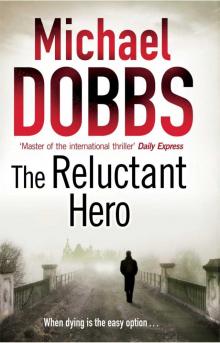 The Reluctant Hero
The Reluctant Hero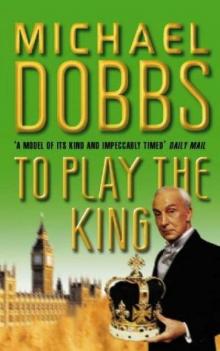 To Play the King
To Play the King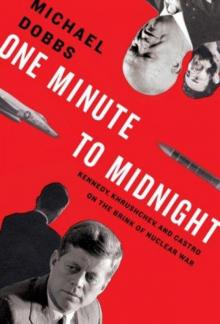 One minute to midnight
One minute to midnight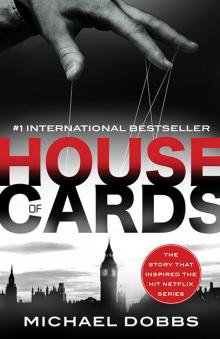 House of Cards
House of Cards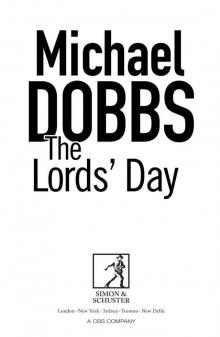 The Lords' Day (retail)
The Lords' Day (retail)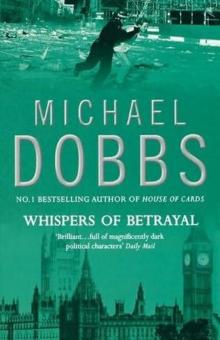 Whispers of betrayal tg-3
Whispers of betrayal tg-3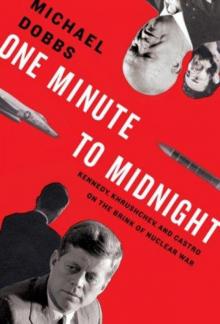 One minute to midnight: Kennedy, Khrushchev, and Castro on the brink of nuclear war
One minute to midnight: Kennedy, Khrushchev, and Castro on the brink of nuclear war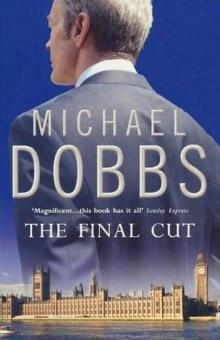 The Final Cut fu-3
The Final Cut fu-3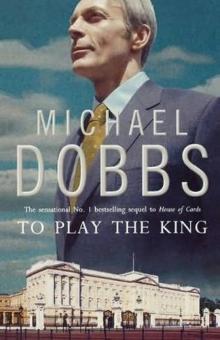 To play the king fu-2
To play the king fu-2 A Ghost at the Door
A Ghost at the Door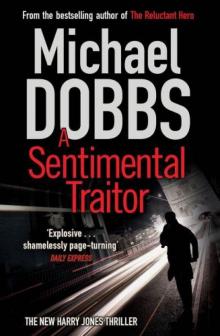 A Sentimental Traitor
A Sentimental Traitor